Qatar’s primary incubator for technology development, Qatar Science & Technology Park (QSTP), part of Qatar Foundation Research and Development (QF R&D), hosted the second Demo Day for its flagship three-month long ‘Accelerator Programme’ on 18th January.
The initiative is aimed at bridging the gap between research and commercialisation, while facilitating the transformation of inspiring ideas into feasible products that address various market demands. Providing entrepreneurs in Qatar with comprehensive training that helps them turn an idea into a prototype, QSTP’s ‘Accelerator Programme’ is part of Qatar Foundation for Education, Science and Community Development’s (QF) unique approach to research and development.
In collaboration with key programme partners, including Qatar Computing Research Institute (QCRI) and the Supreme Committee for Delivery and Legacy’s ‘Challenge 22’ initiative, nine participants underwent robust training under the supervision of seasoned business and technology experts.
Offering innovative solutions to trending business needs, such as media technology, personal life, health and fitness, education, and entertainment, the second Demo Day featured nine innovative projects. These included ‘V3V’, ‘Tweet Mogaz’, ‘Aingel’, ‘Gamified Self’, ‘Metis’, ‘EcoGym’, ‘Ergonomic T-Shirt’, ‘MaktApp’, and ‘Braille Touch’.
Commenting on the success of the ‘Accelerator Programme’, Hamad Al Kuwari, QSTP’s Managing Director, said: “Transforming technological and scientific ideas into marketing products is a long process, and QSTP’s ‘Accelerator Programme’ is designed to walk the long path of product development alongside young innovators. This stems from our belief that establishing change in our economies requires hard work, progressive policies, and the ability to take calculated risks. The cooperation of educational establishments, scientific laboratories, and industrial enterprises on an ongoing basis is also highly valuable in supporting outstanding thinkers and creators in our communities, such as the ones hosted by this second Demo Day.”
He continued: “QSTP strives to be a unique platform that transforms creative ideas in Qatar and the Pan Arab region into reality. We have committed ourselves to be the hub for technological and scientific innovations and an essential supporter of aspiring entrepreneurs through our permanent mission to implement Qatar’s National Research Strategy.”
As such, a number of innovative entrepreneurial ideas were presented at the event, including ‘TweetMogaz’, a news portal that generates news from social media posts of individual users. It aims to report unique news stories in real-time, measure public opinion, and open new dimensions around the utilisation of social media. ‘MaktApp’, a project developed by a group of bright Qataris and pitched by Saleh Al Mansoori, offers a portfolio of cloud services as an all-in-one business solution for small to medium-sized enterprises (SMEs). ‘Metis’, a project designed by students at Carnegie Mellon University in Qatar, offers a comprehensive and creative solution to academic planning for undergraduate students, while ‘Braille Touch’ aids reading for the visually impaired through the use of existing touch devices.
Maha El Moughany, a programme participant whose Ergonomic T-shirt helps detect improper posture of the wearer, said: “QSTP’s ‘Accelerator Programme’ offered us extensive support and guidance on how to conduct effective market research, which enabled us to identify potential gaps in the market and assess the feasibility of our product idea. We strongly encourage more youth to join, as it will help them transform their business ideas into realistic commercial ventures. Through the successful commercial outcomes made possible with this programme, we are also able to make a valuable contribution to the ever-expanding Qatari business landscape.”
QSTP’s ‘Accelerator Programme’ is an intensive three-month programme designed to provide aspiring entrepreneurs with training and mentorship to help them take their ideas to the market. It combines funding and mentoring, setting out three clear objectives or outcomes for those accepted into the programme: create a conceptual prototype, verify commercial viability, and access potential investors.
